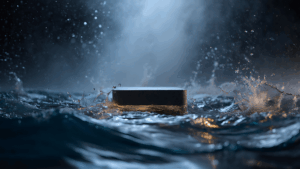The terms ‘trade effluent’ and ‘wastewater’ may sound similar, but there is a big difference between the two…
What is wastewater?
Wastewater, also referred to as sewage, is the waste generated by our domestic lives. Wastewater comes from anything that is poured down the plughole, the drain, or flushed down the toilet, and can include food waste, oils and fats, cleaning products and, of course, human waste. The composition of sewage means that it’s also full of viruses and bacteria. All wastewater is diverted, via the sewers, to water treatment plants that will remove all the waste and return clean water back into waters, lakes and reservoirs.
Every home and workplace produces wastewater, and for many businesses, wastewater is all they need to dispose of. Quantities may vary – for example a hotel will use more water than an office, but as all the wastewater produced is classified as domestic, i.e. from sinks, showers, toilets and kitchens, businesses will not need to apply for consent.
What is trade effluent?
Trade effluent is liquid waste that contains more materials than domestic waste. As trade effluent is discharged in such large quantities, it is likely to overwhelm the sewage system if it is not managed correctly. Trade effluent consent is a legal requirement for companies that produce trade effluent, regardless of how much is disposed of.
Trade effluent is a by-product of manufacturing and industry and can consist of oils and fats, chemicals, detergents, heavy metals, food wastes and other solids. Not all trade effluent can be discharged into the sewage system, especially if it will cause damage to the infrastructure or create health risks to workers. It may well be that you will be required to treat your trade effluent before it can be discharged either to the sewage or via soakaway into land.
What businesses produce trade effluent?
Industries that are most likely to produce trade effluent are food and drink producers, chemical manufacturers, power stations, hospitals, and health authorities, as well as smaller businesses such as car washes, laundries, swimming pools and leisure centres.
Why is trade effluent consent important?
It is illegal to discharge trade effluent without consent with the risk of prosecution and fines. The licence will define the discharge allowed and detail the restrictions. Samples of your wastewater will be taken regularly to ensure compliance.
How to apply for trade effluent consent
Trade effluent requirements can be complex. Castle Water’s expert trade effluent team has the experience and technology required to understand it like no one else and can help you to make the process simple.



